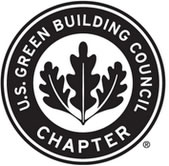by Steve Gonzalez, C.G.C.
 |
Steve Gonzalez C.G.C |
Loan Shopping
Surveys show that the majority of homeowners do not actively shop around when seeking home improvement loans. Yet thousands of dollars can be saved simply by doing some research.
The three main things to consider when shopping for a home improvement loan are:
1) interest
2) fees
3) percentage of allowable
tax deduction
There are many types of loans available, some more advantageous than others. Here are the most common ones:
Home Equity Loans
Home equity loans are designed to allow homeowners to borrow monies on the equity in their home. The equity is calculated by deducting the mortgage amount (if any) from the home's present market value, which is usually figured by a property appraiser hired by the mortgage company.
Other factors affect the actual amount loaned. Most banks today also prefer that a homeowner's total monthly payments (car, insurance, utilities, mortgages, etc.) are equal to 40% or less of their net monthly income. Many banks now require a minimum income level no matter what equity you have.
The interest rate on a home equity loan depends mainly upon the prime rate. Then the bank adds percentage points (generally averaging anywhere from one to four) above prime. Different banks offer different rates — one bank may offer two points over prime, while another may offer four. A two-point percentage difference can equal thousands of dollars over the life of a loan.
Interest charged on home equity loans is fully tax deductible — an attractive feature, especially on larger home improvement projects — so long as the homeowner's total debt for all properties owned does not exceed the amount of $1.1 million (this won't be a problem for most of us).
Whether to secure a fixed rate loan or adjustable rate loan should also be carefully considered. Adjustable rates fluctuate with the prime rate — and go up and down accordingly. Confirm the "cap," or rate that an adjustable rate loan cannot exceed, regardless of the prime rate. To receive a copy of the "Consumer Handbook on Adjustable Rate Mortgages," visit www.pueblo.gsa.gov/cic_text/housing/handbook/handbook.htm
Fees charged for a home equity loan include the cost of a title search, a credit check, appraisals and points. Each bank may require different fees for these services. Here again, the consumer should shop around.
Home Equity Lines
This type of loan is actually an approved credit line. The amount borrowed is comparable to that of a home equity loan, the only difference being that with a home equity line you receive a checkbook and write checks out as you need them, rather than receiving the money as one lump sum.
An advantage to this type of loan is the way in which interest is charged. You are only charged interest on the amounts you write checks for. This is beneficial for projects requiring several months for completion, or time and materials contracts.
Interest rates on home equity lines typically adjust monthly. Fixed rate home equity lines are also available, though generally at a higher rate.
Fees for this type of loan are comparable to those for a home equity loan, and usually include the cost of a title search, credit check, appraisals and points.
Home Improvement Loans
These type loans range from a minimum of approximately $5,000 up to as much as 90% of the appraised value of a home, with varying interest rates. They are 100% tax deductible when secured by the home. The payback period is generally only five to seven years, which may result in rather high monthly payments.
Fees for this type of loan are normally limited to a credit check — making its fees less than those of a home equity loan.
Life Insurance
Whole life insurance may be another loan source possibility. Rates are generally low and an amount up to the full cash value of the policy may be borrowed. The interest is 100% tax deductible.
HUD - FHA Loans
These type loans are offered by banks participating in the Federal Housing Administration (FHA) program. Through this program, the FHA insures loans for home improvements. The down payment and interest rates are commonly lower than those of conventional home improvement loans. Fees include a credit check, appraisals, closing costs, insurance and points.
401k Plan
Depending on the trust document of your 401k plan, you may be able to borrow money from the plan. The payback period is usually 5 to 10 years. All interest paid on the loan is deposited into your own account, so you actually pay yourself the interest. Interest rates are generally slightly over prime and there are no fees. In the event you leave the company with which your 401k plan is set up prior to paying off the loan, you must either forfeit the monies remaining or pay back the full amount in order to roll over the 401k.
Loans Through Contractors
As with any loan, thoroughly check interest rates and fees on loans offered by contractors through banks or other financial institutions. Don't assume the contractor will find you the best deal.
What To Look Out For:
Unsecured Personal Loans
Unsecured personal loans carry a harsh payback period, generally only 3 to 5 years (up to 4 years less than most home improvement loans). Rates for this type of loan are almost always higher than a secured home improvement loan. Another downside: unsecured personal loans are not tax deductible.
Balloon Payment Loans
These type loans require that interest be paid back over a set period of years. At the end of that period, the loan balloons, requiring the full amount of the principal to be paid as one sum. What happens if, due to whatever reason, you find you are unable to secure a new loan when your first loan balloons? What would you do in the event the amount of equity in your home had decreased, leaving you without sufficient monies to cover the balloon payment? These type loans warrant very careful consideration.
Cash Payments
Cash payments are never a good idea. Cash should be turned into money orders or deposited into a financial institution and paid out in the form of checks or drafts. This offers a valid form of documentation that a payment or payments were made.
Steve Gonzalez is a master home builder / consultant / and author of “Before You Hire A Contractor” / ConsumerPress.com / Copyright 2008
For more information about how we can help you or to obtain a quote call 954-817-3030 or use our contact form.











